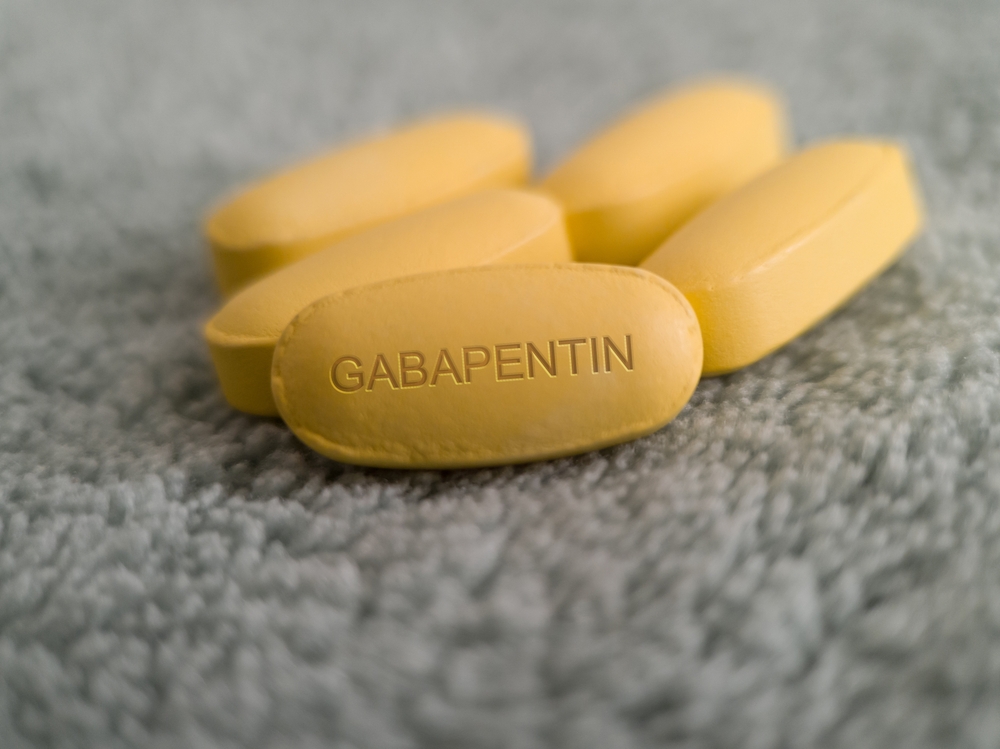Last Updated:
August 19th, 2025
Gabapentin Rehab Treatment | What to Expect
Gabapentin was developed to treat epilepsy and nerve pain and it is still prescribed for that in the UK and around the world. But in recent years, there has been a big rise in overdose deaths linked to gabapentin, a sign that addiction may be causing people to take more than they should. If you are struggling with gabapentin addiction, every day it goes untreated is a day your life is potentially in danger. Professional gabapentin addiction treatment means having doctors, therapists and a whole team behind you to help you come off gabapentin safely and start healing.

What is gabapentin addiction treatment?
Gabapentin treatment is usually broken into three parts. Each one focuses on something different but they all work together to help you recover:
- Gabapentin detox is when you start lowering the dose with help from a medical team until you are down to none at all. Your team will make sure your body handles the changes without things getting out of control.
- Then comes gabapentin rehab which is more about your head and heart than your body. You will talk in therapy about how it all started, what got hard and how to move forward without needing gabapentin to hold your life together.
- Aftercare is the final part which is often forgotten. It keeps you on the path you have begun during parts one and two and provides extra therapy and other forms of support to make that path clearer.
How to tell if you need gabapentin addiction treatment?
Not sure if things have gone too far with gabapentin? Look closely at yourself and answer these questions:
- Do you snap at people when you haven’t taken gabapentin?
- Is it hard to focus at school or work because you have taken gabapentin or you’re craving it?
- Have you lied about how much gabapentin you’re taking?
- Do you know gabapentin is messing up your life but you still can’t stop?
- Do you feel like you need gabapentin just to survive a normal day?
- Have you told yourself “this is the last time” more than once?
If any of that sounds familiar, let’s look at gabapentin addiction treatment one step at a time:
Struggling with an addiction? If you are ready to seek help, reach out to us today, and a member of our compassionate team will help you find the best option for starting your recovery journey.
Step one: Gabapentin detox
When your body gets used to having gabapentin every day, your brain starts acting like it now needs it. At this point, taking gabapentin is no longer a choice that is just in your hands, it is a physical dependency. If you then suddenly decide you are going to stop, your system can go into a bit of a meltdown. That is called gabapentin withdrawal and it can make quitting alone rough and even risky.
At a proper gabapentin detox centre, however, you will be looked after by people who know exactly how this works. They will check what you need medically, make a plan to lower your dose safely and keep an eye on you the whole time. If anything feels off or hits too hard, they can change the plan or maybe give you medicine to help you through.
Gabapentin withdrawal timeline and detox symptoms
Coming off gabapentin can feel different for everyone. Sometimes it starts within as little as 12 hours but other times, it can take up to a week before anything changes. Most people are through the worst in 5 to 10 days but if you’re tapering slowly, it can take a lot longer until all the gabapentin withdrawal symptoms cease. This is quite unpredictable as things like your age, your gabapentin dose, how long you’ve been on it or if you’ve also been using alcohol or other drugs all make a difference.
Some common gabapentin withdrawal symptoms include:
- Feeling twitchy, anxious or on edge
- Pain in your body
- Getting confused or spaced out
- Headaches, dizziness and nausea
- Trouble sleeping
- Constant sweating
There are also less common but potentially more dangerous gabapentin withdrawal symptoms:
- Depression or dark thoughts
- Fast heartbeat or high blood pressure
- Muscle jerks
- Sensitivity to light
- Cold symptoms
- Seizures, though they are rare
All of this sounds a bit heavy and it can be if you attempt gabapentin detox on your own. But knowing what to expect will hopefully help you feel a bit more in control.
Step two: gabapentin rehab
Once the withdrawals start to ease up, it’s time for gabapentin rehab. If you’re doing detox and rehab together all in one place, you won’t have to adjust to somewhere new right away and that takes a bit of the pressure off.
Addiction doesn’t usually show up out of nowhere as it is often tied to underlying issues that have been too hard to deal with alone. Gabapentin may have helped numb those for a while but the consequences are now outweighing the benefits.
Gabapentin rehab looks at what you were trying to numb and how things spiralled. You may have originally got gabapentin from a doctor or maybe not. Somewhere along the way, however, things have escalated beyond your control. Through therapy, you will get help figuring out what happened and what life might look like without the prison of addiction.
What to expect from gabapentin rehab
Gabapentin rehab isn’t exactly the same everywhere but there are a few types of therapy you should look out for. These are the ones that have proven to be most effective:
- Private therapy so you can talk to an expert one-on-one about your problems and get real solutions
- Group therapy, which can sound intense but allows people to open up and share stories
- Behavioural therapy to look at how habits form and why your brain keeps pulling you back to gabapentin
- Family therapy to provide a space to clear the air with loved ones
- The chance to set your own goals during Motivational interviewing
- Yoga, art and meditation therapy to give you some peace and time to take stock
Step three: Aftercare and gabapentin relapse prevention
Finishing rehab isn’t the end of the road but is the first real step of a lifelong journey. Aftercare is the bit that helps you keep going once you’re out in the world again, enabling you to deal with the unpredictable. Important parts of aftercare include:
Find gabapentin addiction treatment today
Starting anything new is scary, especially something as important as this. Addiction Helper will walk you through all your gabapentin addiction treatment options so you can make the right choice for your recovery. Get in touch with us today.
Our compassionate team are ready and available to take your call, and guide you towards lasting the lasting addiction recovery you deserve.
Frequently Asked Questions
(Click here to see works cited)
- FRANK. “Honest information about drugs.” Honest information about drugs | FRANK, https://www.talktofrank.com/drug/gabapentin. Accessed 18 June 2025.
- UK Rehab. “Gabapentin Addiction | Causes, Symptoms and Diagnosis.” UK Rehab, https://www.uk-rehab.com/prescription-drug-addiction/anticonvulsant/gabapentin/. Accessed 18 June 2025.
- Walsh, Sharon L. “Gabapentin misuse, abuse, and diversion: A systematic review.” PubMed Central, https://pmc.ncbi.nlm.nih.gov/articles/PMC5573873/. Accessed 18 June 2025.
- Smith, Blair H et al. “Substance misuse of gabapentin.” The British journal of general practice : the journal of the Royal College of General Practitioners vol. 62,601 (2012): 406-7. doi:10.3399/bjgp12X653516


